
From Butterfly to Aida and Tosca, how Chinese soprano He Hui took Italian opera to heart – book extract
In an extract from her new book, Hong Kong author Melanie Ho describes how a singer from Xian, China, has made some of the biggest roles in Italian opera her own, none more than the title role in Madama Butterfly
Hong Kong author Melanie Ho’s new book, Journey to the West: He Hui, a Chinese soprano in the world of Italian opera, takes readers from He Hui’s home in Xian and her second-place finish in Plácido Domingo’s Operalia competition to her debut as Tosca in the notoriously difficult opera city of Parma and, ultimately, to her arrival and staying power as one of the world’s leading sopranos.
Chinese soprano He Hui talks about singing Aida for Placido Domingo and loving the role she’ll perform in Hong Hong this month
In an excerpt from her new book, Ho describes how He Hui has made the role of Butterfly her own:
The curtain closed. He Hui stood and straightened her white kimono. Although she hadn’t wept (the perfect geisha make-up remained intact), the heartbreak of the performance – specifically, the emotion of this performance – wasn’t lost on anyone. The curtain had closed on He Hui’s 150th performance of Madama Butterfly. The Chinese soprano allowed herself a soft smile.
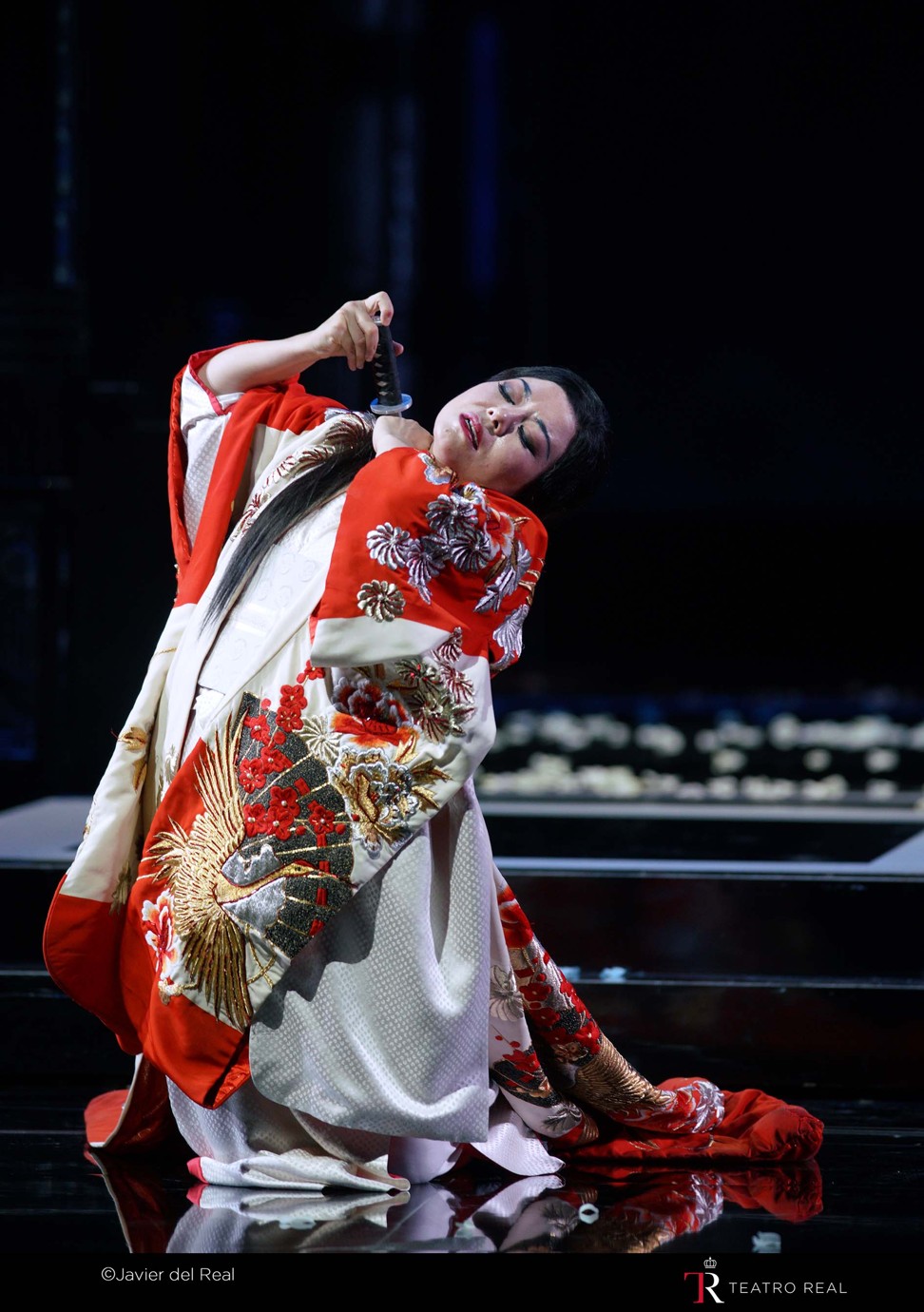
The applause, enthusiastic and generous, was audible through the heavy curtain. Critics of an earlier performance at the Dallas Opera House had praised He Hui’s Butterfly as one “for the ages”; she wondered if anyone watching her might have known about the milestone. In all likelihood no.
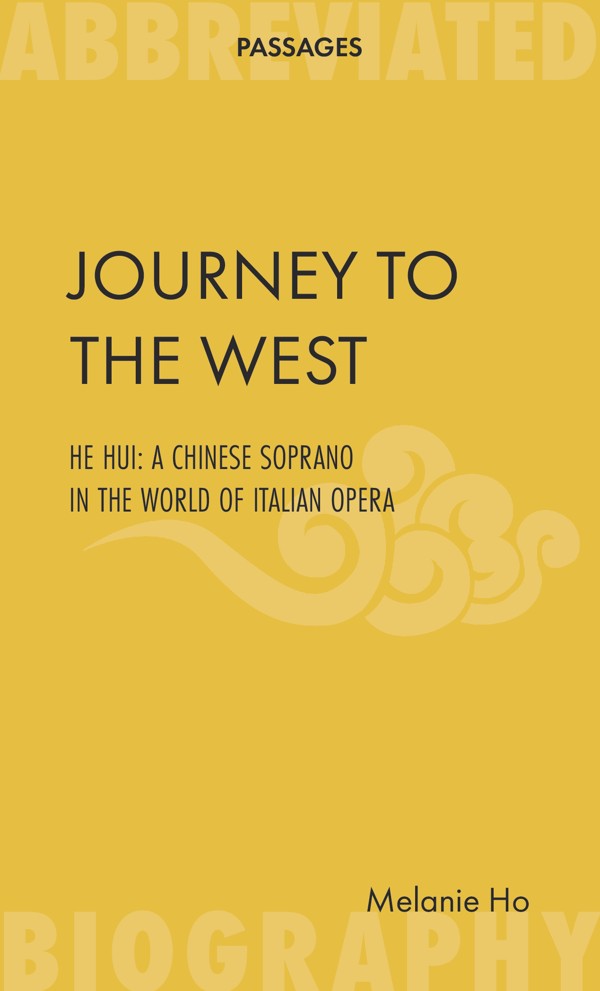
Had He Hui herself not noted each of her performances – as Butterfly, as Aida, as Tosca or any of the other roles she has come to play – she might have also been unaware. But the quiet marking of this moment also formed part of her desire to focus on the performance. For He Hui, the role of Cio-Cio-san is, in some ways, a deeply personal one and she wanted to channel the emotion of the night into her portrayal of Butterfly rather than on the celebration afterwards.
Just moments earlier, He Hui sang Butterfly’s final lament, Con onor muore, reading the words etched on her father’s sword – “Die with honour those who cannot live with honour” – the same sword which in Act I had foreshadowed the tragic ending of this love story.
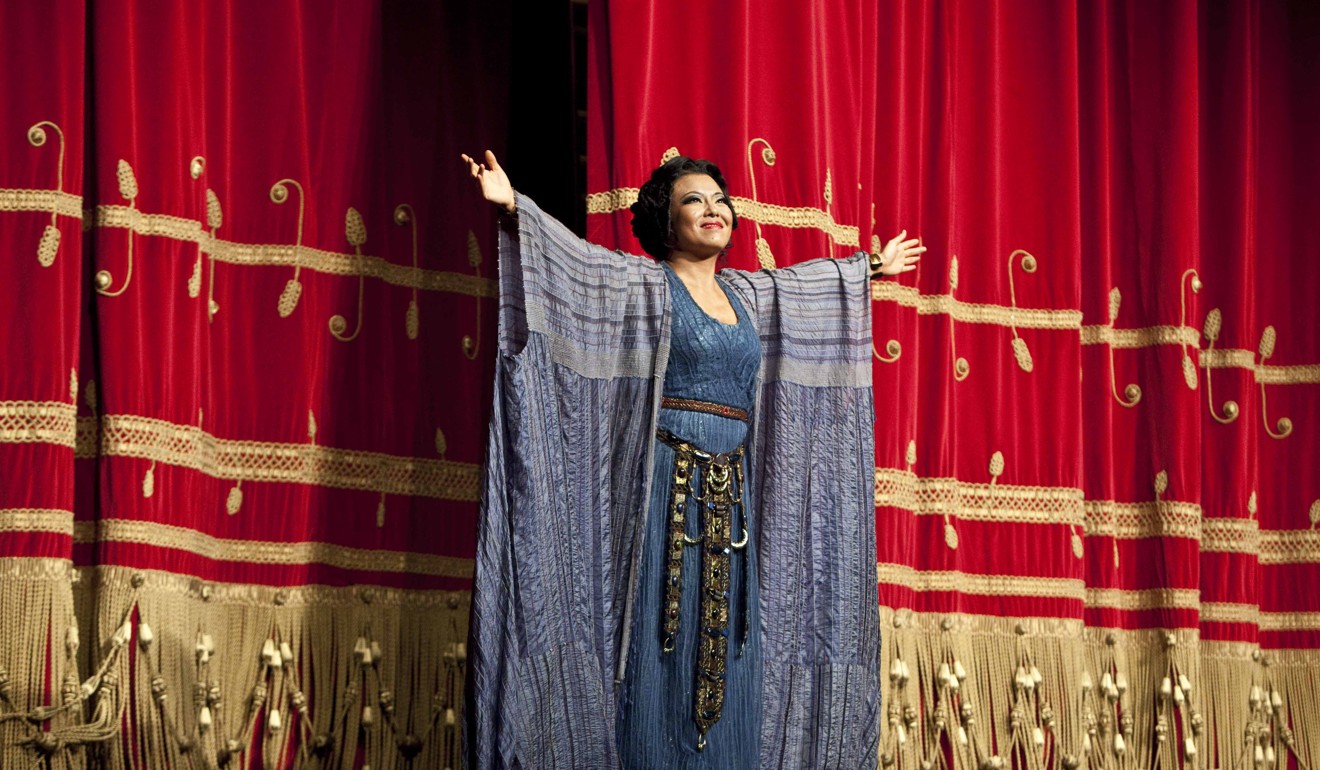
The sword raised, she struggled with the dilemma before her: Pinkerton, the American navy officer who had wooed her, married her and left her with child, finally made good on his promise to return to Nagasaki, only to arrive with his vera sposa americana, his “real American wife” Kate. Heartbroken and betrayed, the girl had given everything up for him – religion, family – and she found herself alone, trapped between two cultures and shattered by the dreams that would no longer be.
Her young son was sent in – a final attempt to dissuade her. She held him tight, asked him to remember her face and then sent him to play, protecting him from what was to come. Alone again, she made up her mind. Kneeling, she picked up the sword and turned it on herself.
Pinkerton rushed in. “Butterfly! Butterfly!” he cried, but it was too late; the fatal deed done, Butterfly’s journey was over.
As audience and singer took the other in, it must not have been lost on the audience what stood in front of them: a soprano from Xian, China, singing in Dallas, Texas, the ultimate of East-meets-West stories performing Puccini’s East-meets-West masterpiece.
Hong Kong group to strip down operas and bring them to the people
He Hui’s Butterfly has earned her accolades ever since her debut in the role in 2003 (just the following year, Wiener Zeitung called it “the best Butterfly you could wish for”).
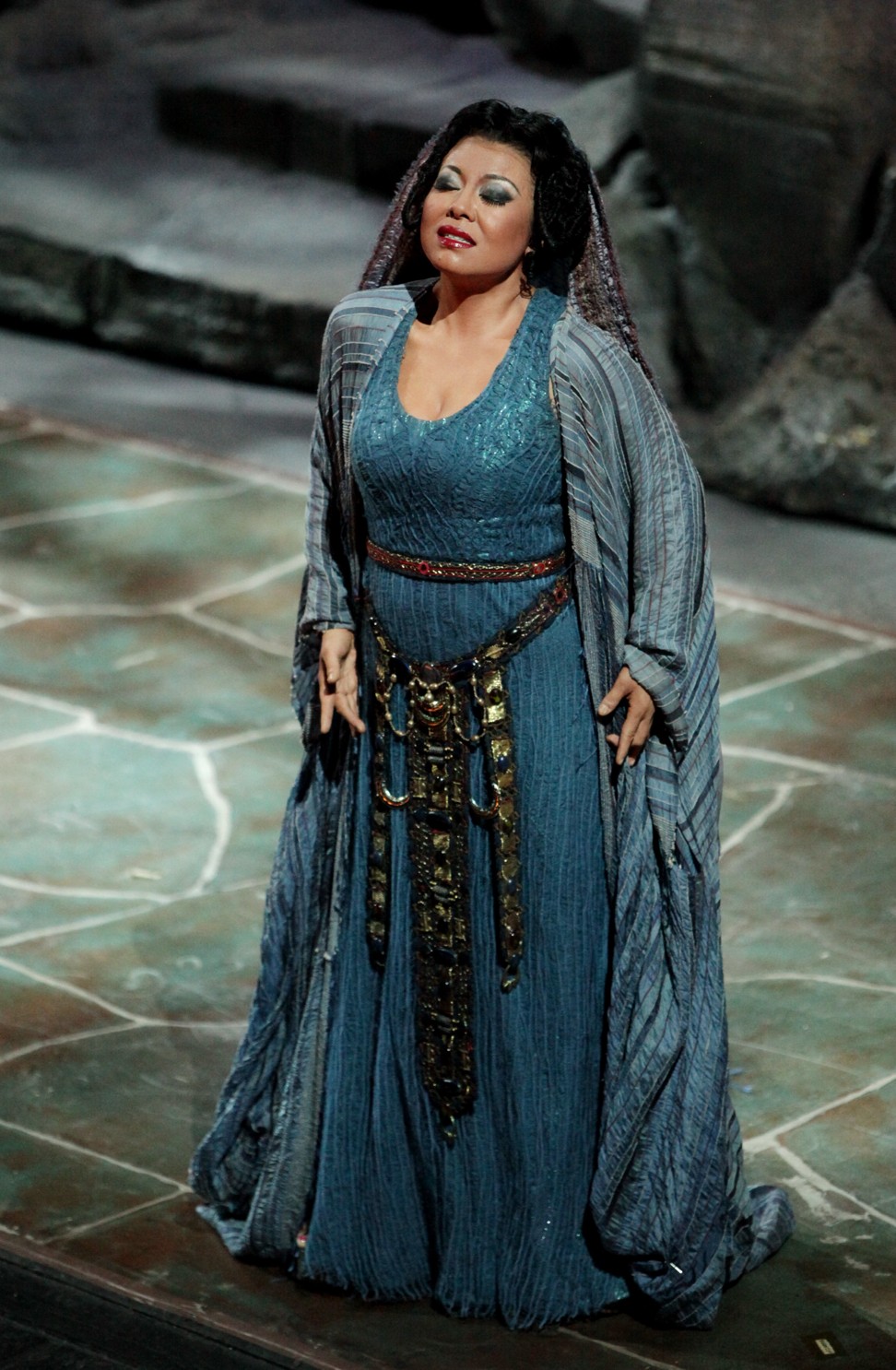
Equally, however, she has found success in her interpretations of Tosca and Aida. In fact, she reached her 150th performance of Aida almost a year earlier, in the summer of 2016 at the Arena di Verona, the annual festival that is a paean to opera in Verona’s massive and still largely intact Roman amphitheatre.
He Hui has stepped into the role of the celebrated nineteenth-century diva Floria Tosca nearly 100 times and when that milestone is achieved, it, too, will certainly be a cause for celebration.
With Aida and Tosca, He Hui also made history: she was the first Chinese soprano to sing Tosca at La Scala and the first to sing Aida at both the Vienna Staatsoper and New York’s Metropolitan. Critics have lauded her Butterfly, Tosca and Aida (in 2013, her performance at the Arena di Verona was described as “impeccable”) and she has found acclaim in all three roles on many of the world’s most important stages.
Hong Kong science fiction writers and artists paint dystopian future in new book
All three roles play major parts in her career: He Hui identifies with Cio-Cio-san, the young Japanese woman caught between East and West. In the enslaved Ethiopian princess Aida, she draws on the character’s strength, but also understands Aida’s dilemma of love, family and patriotism. But perhaps it is Tosca, which holds the key to He Hui’s story.
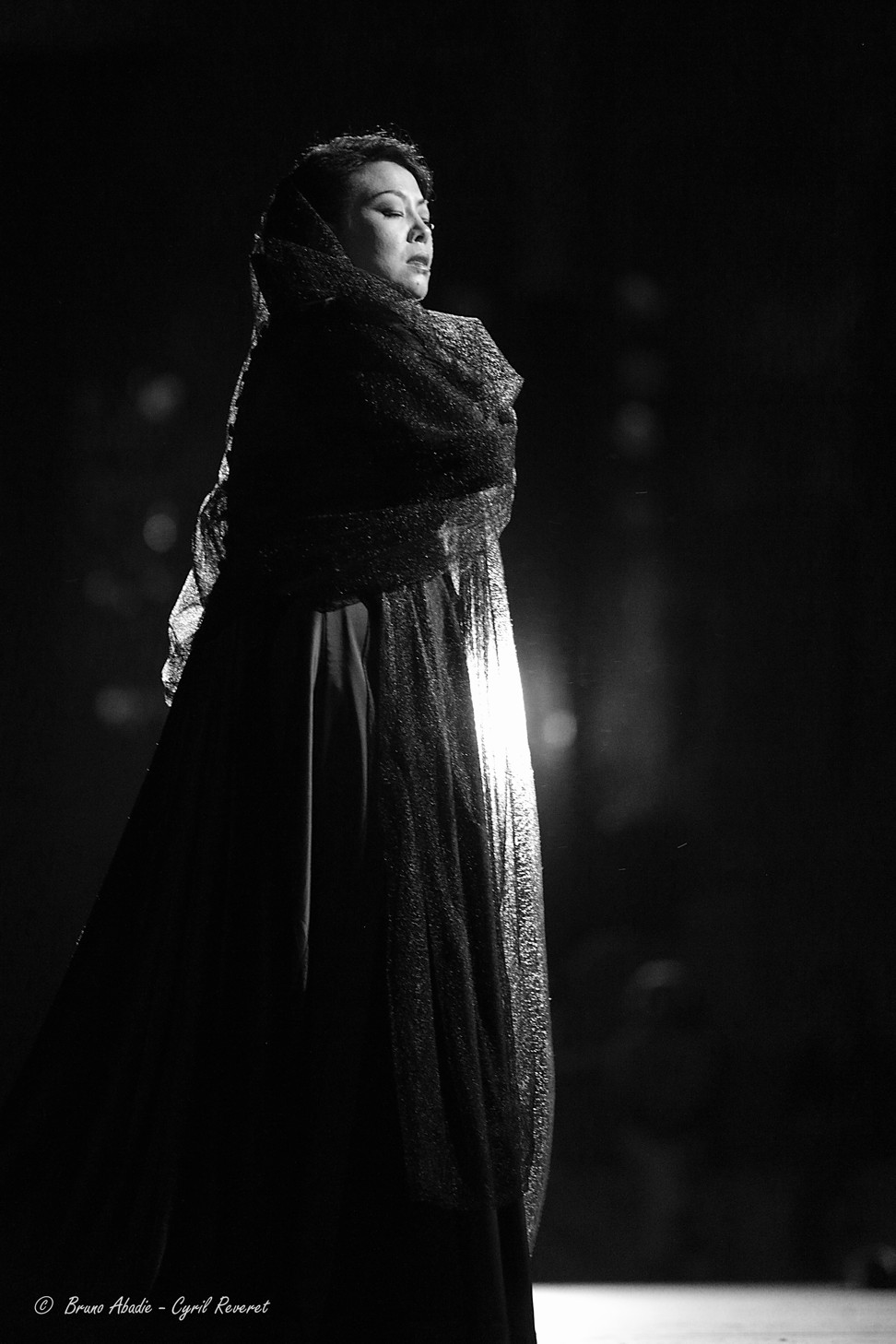
As Tosca sings in the piazza outside Palazzo Farnese, her voice is heard by both the characters on stage as well as the audience watching the opera. Baron Scarpia, the chief of the secret police, identifies Tosca by her voice; to the audience, as well as to Scarpia, the woman they hear is the Italian diva Tosca, rather than the Chinese soprano He Hui.
If He Hui is Butterfly because she understands what it means to be a young Asian woman with hopes and aspirations for a life outside of her traditions, she is also Tosca; she is as much a celebrated singer as she is an Asian woman – her italianità is as believable in Puccini’s Tosca as is the Asianness she exudes in Butterfly.
Chinese-American author Jenny Zhang’s taboo-busting short stories mix sweet and rancid
He Hui’s connection with Butterfly is there for all to see, but her connection to Tosca – she becomes Tosca – is perhaps less immediately self-evident. Perhaps this makes it all the more extraordinary: her Italian comes from living, breathing and singing in her adopted home, the country of opera’s origins and He Hui’s own journey west.
Journey to the West: He Hui, a Chinese soprano in the world of Italian opera by Melanie Ho is published by Abbreviated Press. The book will be launched on October 27 at the Dante Alighieri Society, 1/F Honest Building, 9-11 Leighton Rd, Causeway Bay
